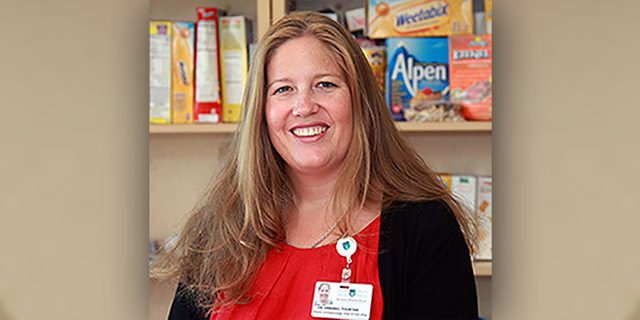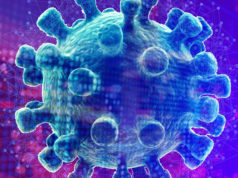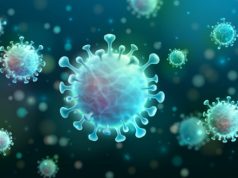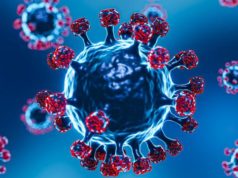[Column written by Dr. Annabel Fountain]
What supplements should you take to boost your immune system? Part 1
In 2012 a very large Danish study showed that taking supplemental vitamins was associated with worse health outcomes, not better! In April 2019, another large study was published in the Annals of Internal Medicine which showed the same thing. One exception was Lycopene which reduced the chance of dying from cancer.
Cutting to the chase, there is no supplement or other lifestyle modification, other than social distancing and proper hygiene practices, that can protect you from catching COVID-19. Making healthy lifestyle choices by eating nutritious foods, managing stress and getting enough sleep and exercise are very important ways to support your immune system. Controlling other diseases such as diabetes, asthma and high blood pressure are also essential. This way, if you do catch COVID-19 or any other infectious disease, your body has the best chance of fighting it.
People who are malnourished and live in poverty are more vulnerable to infectious diseases. Many older people have reduced appetite and less dietary variety which can lead to deficiency in essential vitamins and trace minerals. There are multiple micronutrients [zinc, selenium, iron, copper, folic acid, and vitamins A, B6, C, and E] that are integral to effective immune function.
My good friend Olivia Benyak-Pitcher has assisted me with this article. Olivia is a pharmacist who owns and operates My Pharmacy in Charities House on Point Finger Road. She has a doctorate in pharmacology and is passionate about nutrition and the use of herbs and supplements as medicine.
We decided to divide this article into two parts because there’s so much to discuss. I also checked in with Dr Michael Ashton, Chief of Medicine at Bermuda Hospitals Board, who is an Infectious Disease specialist [like Dr Fauci!]. I specifically asked him about the antibody responses to infection and their use in the testing that we are now able to do in Bermuda.
First of all, let’s just go through the components of the immune system so that you have an idea of what you’re trying to influence. Your immune system consists of barriers, cells, processes, and chemicals that defend your body against invading pathogens like viruses, toxins, and bacteria. It’s pretty complex overall but some of it is relatively simple.
The skin and mucus membranes [in the nostrils, mouth and gut] are the first thing that any microorganism will come into contact with. These barriers block entry of most pathogens and the mucus and saliva contain antibodies [IgA] and enzymes that kill pathogens. The stomach has additional acid as well as mucus for protection.
Once a virus or other pathogen gets past the initial barriers, and is able to enter the blood stream, the next defense are white blood cells. One kind of white blood cells literally eats bacteria and viruses and digests them. These are called phagocytes. The other white cells are called lymphocytes which are made by your bone marrow and lymph glands which is why the glands in your neck get swollen when you are fighting an infection. Lymphocytes make antibodies which stick to the pathogens [IgM] and make them targets for the phagocytes to eat.
It can take a few days for the antibodies to develop but in the meantime your body makes all sorts of other chemicals [chemokines and cytokines] which are what cause inflammation – the body aches, redness, swelling, fever and other symptoms of infection. It’s actually your body’s response to infection that makes you feel that way, not the infection itself. There are many different kinds of antibodies that develop. As you recover from an infection, IgG antibodies develop. IgG is the kind of antibody that confers immunity to future infection from the same pathogen and what your body makes in response to vaccinations to protect you from diseases like flu, measles, chicken pox etc.
IgM and IgG are components of the antibody testing that is now being offered at two labs in Bermuda. We don’t yet know for certain if the presence of IgG antibodies to COVID-19 means that you are immune and can’t catch it again – watch this space!
Another important part of our immune system is the community of healthy microorganisms [bacteria, viruses, parasites and fungi] that live on and inside us. Collectively they are known as the microbiome. Together they assist with digestion, stimulate the immune system, and synthesise certain vitamins. We actually can’t make vitamin B12 or vitamin K – your gut bacteria does this for you.
What can you do?
Having a balanced, healthy diet is the most important choice you can make to support immunity from something you eat. Brightly coloured fruits, vegetables and spices are full of antioxidants, vitamins and minerals. If you don’t think your diet is providing you with enough micronutrients [you don’t like vegetables], a daily multivitamin may help. Remember that there are many different micronutrients so taking high doses of any single vitamin isn’t the key.
In response to my earlier article about socioeconomics, race and COVID-19, one commentator asked whether vitamin D deficiency might be a factor in the increased severity and mortality associated with COVID-19 infection in people of Black, Asian and Minority Ethnicity. It is true that many people from these ethnic groups have low vitamin D levels. With the data currently available, it is difficult to define whether vitamin D deficiency is coincidental in these populations who are worst hit by COVID-19 infection, or that it is causative. However, we do know that vitamin D is very important for a healthy immune system, so I thought I’d start with that.
Vitamin D is found in some foods and it is made in the skin [from cholesterol] when exposed to UV light [sunshine]. In the 1800’s, long before anything was known about vitamin D itself, people with tuberculosis went to sanitoria in sunny places to soak in the sunshine. Oily fish, fortified dairy products [and dairy replacements like soy milk] egg yolks and organ meats are good food sources. Cod liver oil is another rich source of vitamin D, has been used for decades as a preventative for infections, colds and flu.
You’d think that in Bermuda we’d all have plenty of vitamin D but actually many people here are deficient. People with darker skin have natural sunscreen which blocks the production of vitamin D. The rest of us are encouraged to avoid the sun by covering up or wearing SPF50 sunscreen. Some people have medical conditions that impair vitamin D absorption or synthesis such as those with coeliac disease or kidney failure which is very prevalent here. In the US, nearly 80% of adults have vitamin D deficiency.
Pharmacist’s advice: 1000-4000IU extra vitamin D per day is enough for most people though those with more serious deficiencies often require much higher doses. The D3 form is better utilized by the body. Vitamin D may have stimulating effects and may disturb sleep if taken it in the evening, so take it in the morning. Eating food that contains some fat when you take your Vitamin D helps you to absorb it better.
Caution: Some anti-seizure medications [Phenobarbital, Phenytoin/Dilantin], anti-tuberculosis drugs, cholesterol-lowering drugs and steroids can affect vitamin D absorption or metabolism. If you take any of these medications, ask your doctor’s advice on supplementing with vitamin D.
Vitamin D is important for multiple other processes in the body including calcium and bone metabolism and insulin function so there are lots of other conditions I could talk about in the context of vitamin D, particularly relating to my specialty Endocrinology. I will save that for another day!
We hope that this brief overview has helped you to better understand the complexities of your immune system and the importance of good nutrition, physical activity and management of other health conditions to support optimal response when your body encounters an infection. The second part of this article will go more into the supplements that can help augment these responses.
– Dr Annabel Fountain is a Bermudian physician who is board certified in Endocrinology, Diabetes and Internal Medicine. In 2018, Dr Fountain was awarded Fellowship of the Royal College of Physicians. She is the Owner/Medical Director of Fountain Medical Group. Dr Fountain offers the following Endocrinology services, Diabetes Prevention, Education and Management, Thyroid Disease – Hypothyroidism, Hyperthyroidism, Nodules and Cancer, Obesity and Weight management, Disorders of Calcium and Bone including Osteoporosis, Hypertension and Cholesterol disorders, Adrenal and Pituitary Disease, Infertility and Menopause, Other glandular disorders. Dr Fountain is available for telemedicine appointments during the COVID-19 isolation recommendations. Please call your primary care physician for a referral or 232-2027 to make an appointment.











